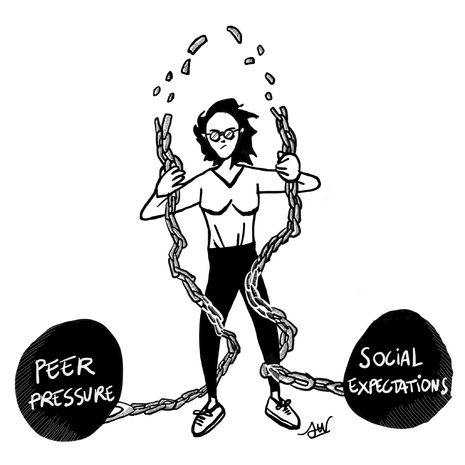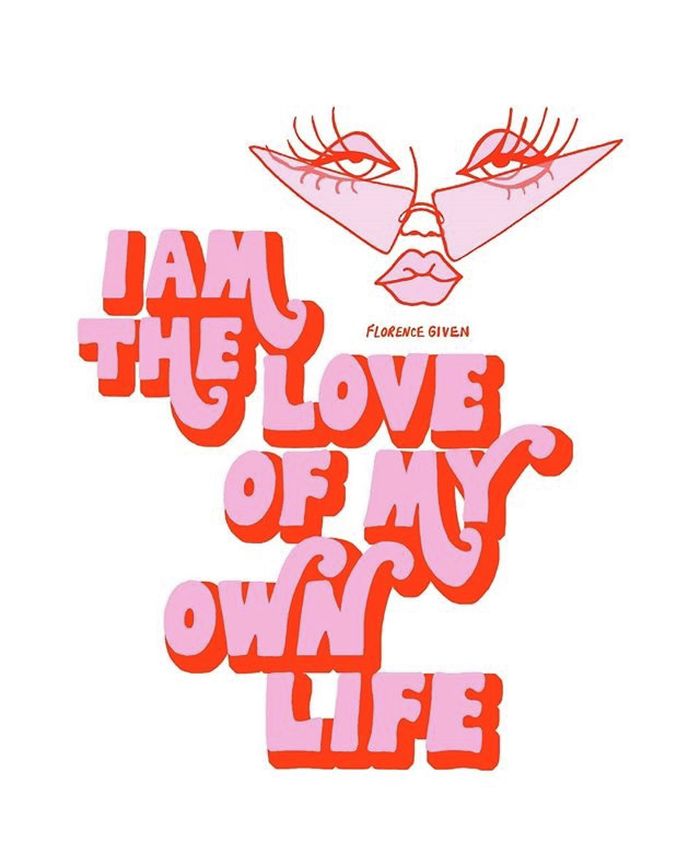Becoming the self you want to be
What does ‘being yourself’ really mean? Isabel Sebode discusses her experience in freeing herself from the expectations of others

Anticipating my first year at Cambridge, I didn’t expect that the most important lessons I would learn wouldn’t involve pens, highlighters and flashcards. Instead, what my new life required was self-knowledge, and a desire to improve my attitude and social behaviour.
As a result, how I would label myself in university is far from the person I used to be in school. Despite never being the resident downer of the group, the humorous attitude I had adopted came with the burden of stress, self-pitying pessimism and anxiety.
I don't need to be stressed simply because I am in Cambridge
My life drastically altered the summer break after finishing school; I felt that, for the first time, I lived with the goal of being happy rather than being productive. I learned how to lean back and breathe. Intuitively, when meeting new people in freshers’ week I projected my carefree, no-work personality. Soon I realised that people began recognising me as someone I never considered myself to be.
I became aware of this fundamental change, and I liked it. Previously embodying the role of the stressed friend, I recognised in hindsight that I unconsciously perpetuated this ‘stress’. I almost felt that it defined me. I had to be stressed, I had to accomplish ten things at once and loudly whine while my mental health silently suffered.
A new social sphere gave me the chance to establish a new ‘me’. I consciously began to project an image of myself as I wanted to be perceived, without the fear of abandoning my set social role.
To me, identity can seem like a product, the sum total of how we perceive ourselves and how we believe others to view us. Many of us may feel like we need to fill a box, or unconsciously adopt a certain role within our friendship group. I acted as I believed I had to act in order to be ‘myself’.
A new social sphere gave me the chance to establish a new ‘me’
My social self, the image I project to others, is how I want to be: a person with balance, positive about upcoming assignments, optimistic when approaching difficulties. I have deliberately adapted behaviours that seemed natural to the person I wanted to be, hoping that will make them natural for me.
Instead of feeling like I have lost myself along the way. I believe that I have finally found who I am, instead of conforming to unofficial restrictions placed on myself. Through adapting a positive voice amidst increasing workload and stress, I know my social self can be a support to others, rather than another burden. Not only did this allow me to improve my mental health and relationship with work, but it makes me feel like I am establishing a positive environment around me. I am no longer adding to the toxic environment of stress but am starting to do my part to neutralise it.
I encourage you to actively consider who you want to be, as tacky as that sounds. Ask yourself, are you saying something because you believe that others expect you to say it; because it has become the habitual answer? Many of us have adapted a common response to questions such as “How are you?”, perhaps saying we are “stressed”, simply because it feels natural to complain, or simply saying “alright” to avoid engaging with our emotions.
It requires an active engagement with your behaviours in order to change them. Don’t get in your own way by believing that self-care and positive routines are something that doesn’t seem like ‘you’. The habits are small (stretching in the morning, waking up earlier, writing a small diary entry before bed), yet the effect is a mindset that can be felt all throughout your daily life. I still do feel stressed and anxious, but crucially, I have changed the way I deal with these moments and the language I use to talk about them.
Consciously adjust the way you think and talk about obstacles in order to change your own outlook and behaviour. I constructed a positive environment around me through preventing myself from being weighed down by my own pessimistic expectations, or those I believe are held by others: I don’t need to be stressed simply because I am in Cambridge.
If anything, I used the negative behaviours that previously burdened me. Projecting a desirable version of myself encouraged me to adapt habits to maintain this personality and fuse my social-self with my personal-self. This way, I learned to fill a new, positive ‘personality-box’, which this time I deliberately created for myself: I identified the mechanism and used it for my own benefit.
This is how I believe you can become who you want to be, rather than fitting yourself into a performed, tight and uncomfortable box of socially accepted (or expected) pessimism and self-deprecation.
 News / Colleges charge different rents for the same Castle Street accommodation2 March 2026
News / Colleges charge different rents for the same Castle Street accommodation2 March 2026 News / King’s hosts open iftar for Ramadan3 March 2026
News / King’s hosts open iftar for Ramadan3 March 2026 Theatre / Lunatics and leisure centres 4 March 2026
Theatre / Lunatics and leisure centres 4 March 2026 News / Angela Merkel among Cambridge honorary degree nominees27 February 2026
News / Angela Merkel among Cambridge honorary degree nominees27 February 2026 News / News in Brief: waterworks, wine woes, and workplace wins 1 March 2026
News / News in Brief: waterworks, wine woes, and workplace wins 1 March 2026









